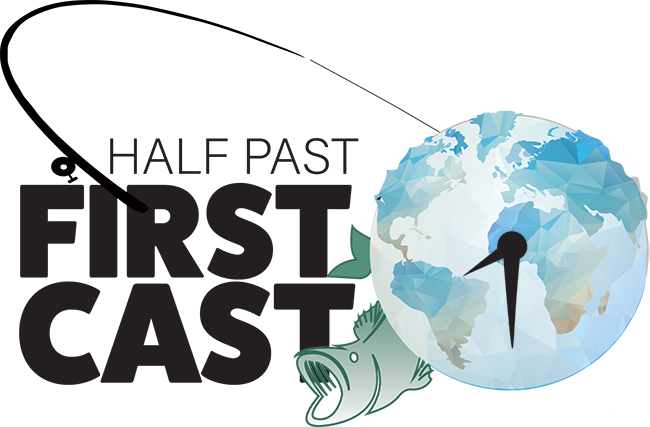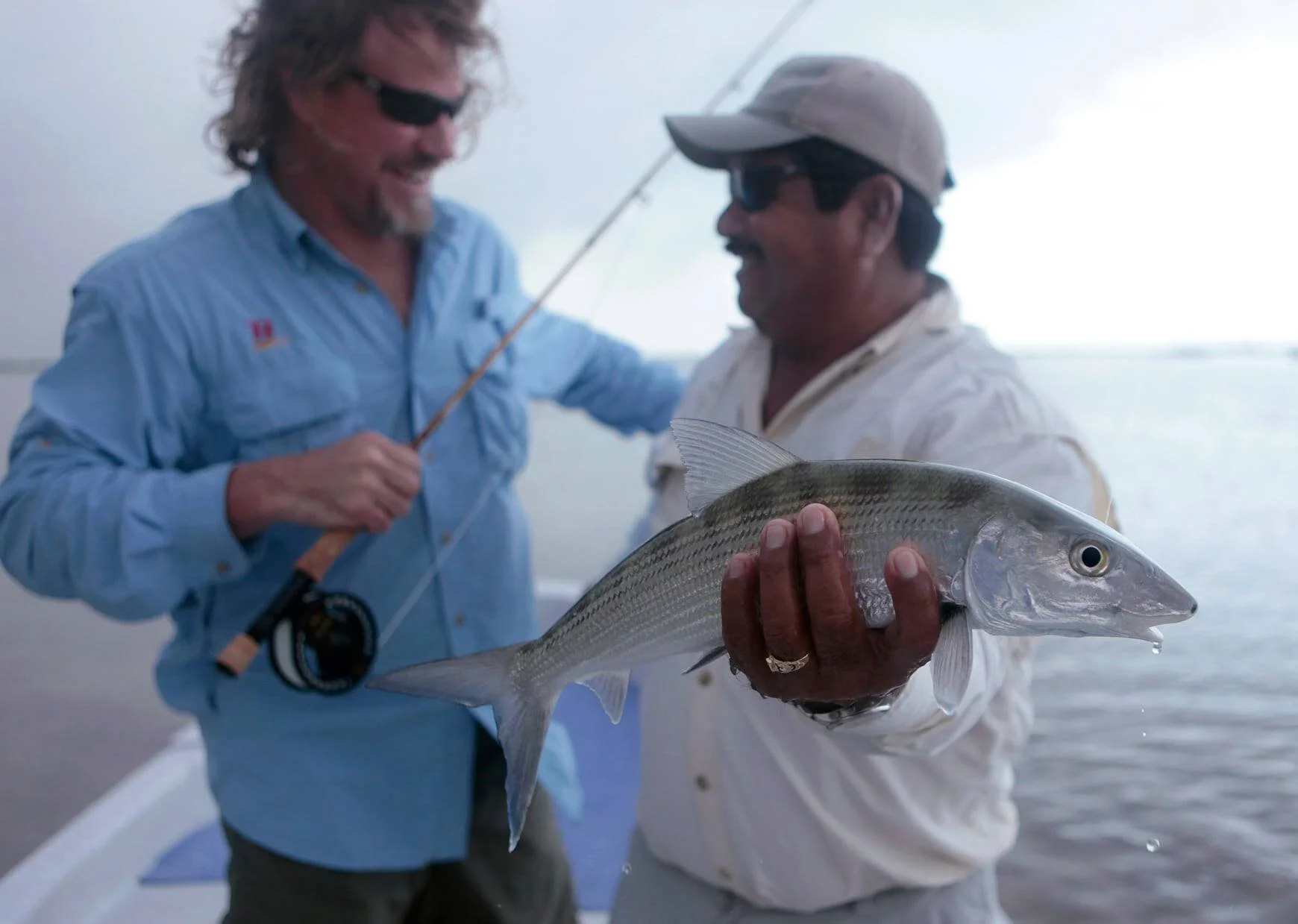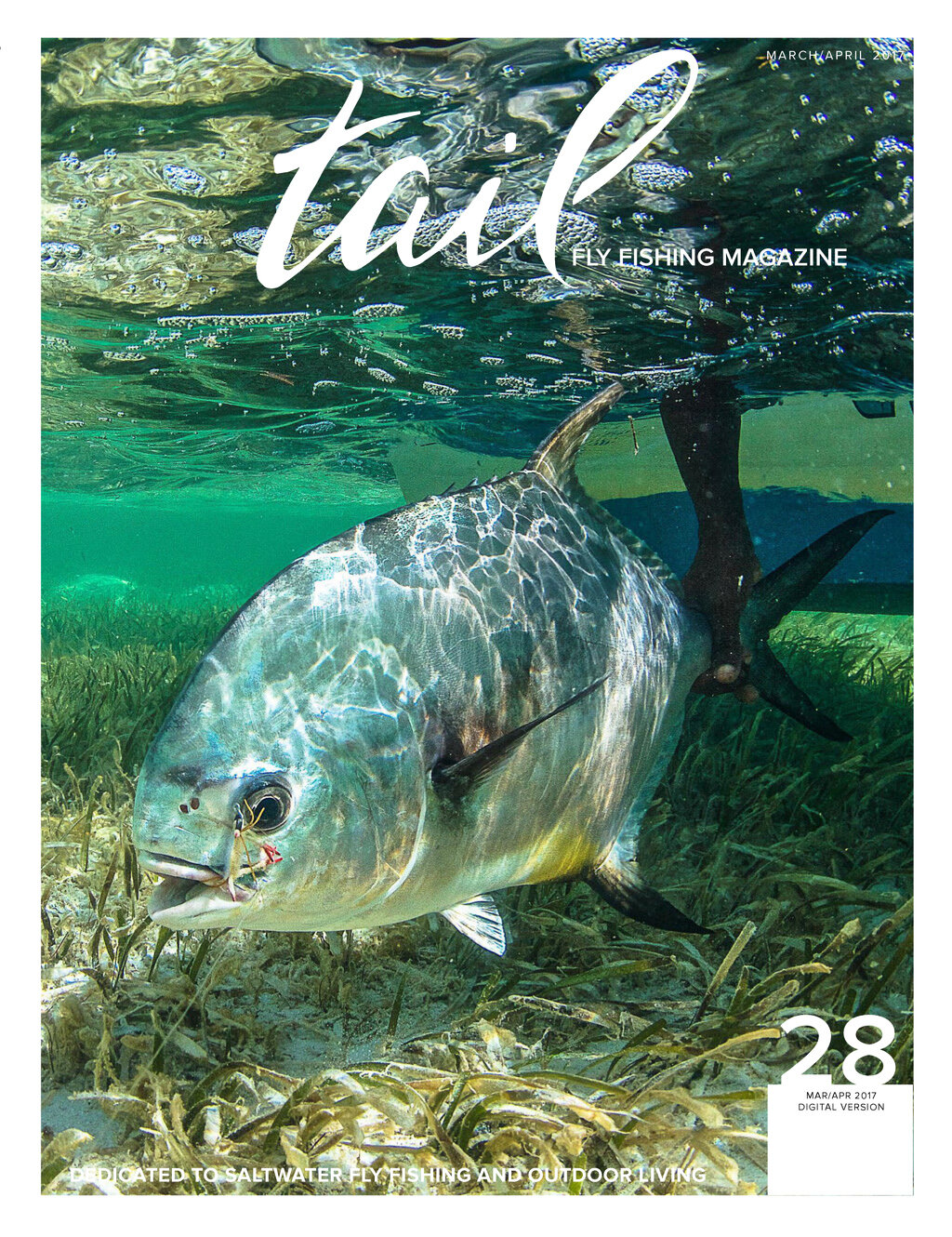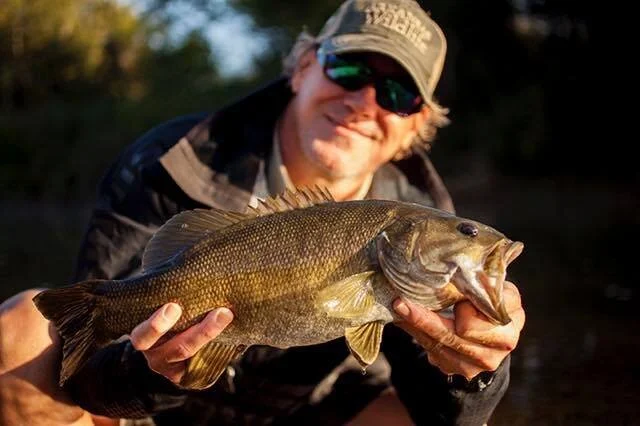Trey Reid: Taking Arkansas to the World and Bringing the World to Arkansas
I knew a lot about Trey Reid before I actually knew him personally, not just through his writing and his TV appearances but also through how other people treated him. At a B.A.S.S. event circa 2006, I watched how one pro after another walked up to him, embraced him, and then picked his brain about one topic or another. I remember being jealous – not only did none of them know my name, but I couldn’t ever imagine having a friendship or relationship with them that went beyond interviewer/interviewee.
In the subsequent 15 years I’ve gotten to spend a lot of time with Trey, primarily at Bassmaster Classics that we’ve both worked for the mothership. He’s relentlessly positive, uber-productive, and the only criticism I might be able to lob at him is that his interests and talents are so varied that no single publication or assignment can contain them all. Besides, he has great hair. He’s a shining example of a fishing life well-lived. Here is just a small portion of his story.
HPFC: Either subconsciously or consciously, I’ve modeled my life on people like you. You hold a full-time job, fish and hunt a lot, and have all of these other projects on your plate. How many things do you have on your plate and how do you manage to balance it all?
REID: As you know, I recently started another side hustle with the Tail Fly Fishing Magazine. I’ve got a full-time job doing PR for Arkansas Game and Fish. I’ve got a radio show – it’s one night a week, so it’s not that much. And of course there’s family, so I’ve got three jobs, family, and I try to go out and fish as much as I can. Fortunately, I do get to fish a lot with my job, so maybe it scratches that itch a little bit more than it does for most people.
HPFC: For people who may not be familiar with Tail, can you describe the magazine’s purpose?
REID: It’s a high-quality print publication that is devoted exclusively to saltwater fly fishing. The publisher and Editor in Chief is a doctor from Miami and it’s a passion project of his that was born out of a digital platform that he started a few years ago. It’s been around for about eight years and has about 30,000 or so subscribers – digital and print both. It’s bi-monthly and has a quarterly companion magazine called Strung that includes freshwater fly fishing and some hunting content. We use really high-quality paper and focus on quality content in both words and pictures.
HPFC: So what is the path for a guy with a full time job who lives in a landlocked state to become the editor at a saltwater fly fishing magazine?
REID: That’s a good question. I’m not sure that I have a great answer. Honestly, I came to the magazine like I’ve come to other publications. I’ve always had a passion for fishing, and about 13 years ago I started traveling to Mexico. I picked a place where I could pursue saltwater flats fishing for bonefish and permit. I fell in love with it and started reading a couple of publications including Tail. A buddy turned me onto it. During the pandemic I was in Mexico right when everything blew up. I went on March 5th or 6th and we heard about this thing called COVID-19. Before we got back to the United States the President had declared a national emergency. That was when all of the toilet paper and hand sanitizer disappeared. I wrote a story about that experience for the magazine. They said, “We like this. Why don’t you write something else for us?” So I wrote something in every issue through the rest of 2020 and I had good timing I guess. The previous managing editor – he’s also in the healthcare field, he’s a nurse practitioner who recently passed his boards – he encouraged me to get more involved. I said, “If there’s any way I can do more, let me know,” and three or four weeks later said, “Why don’t you come onboard?” I started on an interim basis, and I guess they liked what I did.
HPFC: In addition to Mexico, what are some other places you’ve traveled to fish?
REID: I’ve fished the Gulf Coast quite a bit. That’s an easy saltwater fix for me – Louisiana, Alabama, the Florida coast. My son lives in Denver, so the past few years I’ve been traveling out there to fly fish for trout with him. Back in the old B.A.S.S./ESPN days I was fortunate to get to do a lot of traveling for work and I’d usually take along my bass rods, or I’d borrow some when I got to the destinations if it wasn’t easy to travel with them. I’ve been pretty fortunate that work has allowed me to fish a lot of different places over the years.
HPFC: Is there a particular fish or place that’s most special to you?
REID: Largemouth bass fishing in Central Park in Manhattan is really memorable. We went to New York to cover snakeheads, believe it or not. This was like ’05, I think, and they’d been caught on your home turf of the Potomac, and they were starting to pop up in other places. One of those places was in New York City. In the course of interviewing the game and fish people up there I asked, “What does it matter?” The guy responded, “We actually have some of the highest densities of largemouth bass in any of our sampling efforts in Central Park. My reaction immediately was, “I’ve got to do this.” That was pretty cool. Believe it or not, one of my favorite things is right here at home, I love fishing for smallmouth bass in the Ozark and Ouachita mountains and one of my latest obsessions is catching permit. I caught my first permit outside of Xcalak, Mexico last March and I want to just keep doing that.
HPFC: So is more permit the next thing on your bucket list? Or if someone offered you a trip anywhere in the world, cost be damned, where would you go?
REID: I want to get into the Amazon Basin and chase some peacocks. Golden Dorado are on the list. But I’m just very, very drawn to the saltwater flats fishing. I’ve never caught a tarpon before, so I’m going in April to Mexico and I’m hoping to check a tarpon off the list. There’s something about it down there. Number one, it’s such a beautiful place, and I like that it combines some of the same senses that you’re using when you’re hunting. The strategies and techniques feel like hunting and fishing combined, and that really appeals to me. I would like to do that more, perhaps in some more exotic locales. I’ve been to the Bahamas before. I’d like to maybe go to the middle of the Pacific, like French Polynesia or Christmas Island.
HPFC: You’ve straddled the bass world and the fly world for a long time. One of the things that I’ve noticed in my travels is that they tend not to mix. In fact, they tend to be suspicious of each other. What do the two camps not really understand about each other?
REID: In fishing in general, and in hunting, too, we sometimes lose sight that we are really all trying to scratch the same itch, maybe it’s just on a slightly different part of our body. We’re all after the same experiences. It’s really kind of all the same thing. Specifically, I think that the fly fishing world views the bass fishing world as kind of like a good old boy, Southern thing that’s all about competition. Maybe vice versa, and this is not going to be a surprise to anybody, but I’m sure that a lot of the bass guys look at fly fishing as kind of elitist. But they both have really strong conservation ethics. They’re coming from different places, but I’ve always been of the school of thought that it doesn’t make sense to criticize someone for coming at it from a different direction if we all really care about the betterment of the natural world.
HPFC: If there’s a bass addict who wants to experience the other side, what’s a trip or a species – saltwater or freshwater – that allows for a clean entry into the fly fishing world?
REID: I think Florida Keys, Bahamas, somewhere close like that for bonefish, to me that’s the gateway drug to permit. I was actually editing a piece from Chris Dorsey from Buccaneers and Bones. He’s got a book coming out this spring and he quoted Lefty Kreh. Of course, Lefty fished for everything, and he said if you took a bonefish and a largemouth bass and tied them tail-to-tail the bonefish would pull the scales off the bass dragging it backwards through the water. Bonefish are the perfect gateway to saltwater flats fishing. It’s the one that’s most accessible and they’re just so explosively powerful that if that doesn’t get you excited, nothing will. But you can fly fish for everything. I like fly fishing for bass. I think that’s another big misconception, that fly fishing is only for trout. It’s just another way of doing it, whatever species you are fishing for.
HPFC: You’re also a lifelong resident of Arkansas and a huge advocate for the state’s natural resources. For someone who is either making a dedicated trip to the state, or just passing through, what is a can’t-miss fishing trip?
REID: It’s just so tough to pin it down to one. Obviously, Arkansas is pretty well-known for its trout fishing. There was a world record brown trout that stood for over 20 years that was caught in Arkansas. I would go to the Mountain Home area, the area where they make Ranger and Triton and Bass Cat Boats. There’s a reason that boat manufacturing is so big there. It’s because you have so much incredible water. You’ve got the tailwater trout fisheries. You’ve got the big upland reservoir lakes, where you have all three species of black bass, plus crappies and bluegills and other species, too. You’re also not that far from some other renowned warmwater fisheries like smallmouth bass fishing on the Buffalo River. If you’re only going to go to one spot, draw a 20-mile circle around Mountain Home and you’re going to have access to just about any kind of fishing you could ever want.
HPFC: What’s a non-fishing item that goes with you on every trip?
REID: I always take a notebook and a pen to make notes of my trip.
HPFC: Besides fishing and hunting, do you have any other hobbies?
REID: Any culinary pursuits. I love to cook. I’ve really been on an Indian food thing over the last several years. I make one hell of a Chicken Makhani or Butter Chicken. I’ve also been affiliated with the World Champion Cheese Dip ConcheeZtadors.
HPFC: Does cheese dip travel well?
REID: As long as your refrigerate it, which is problematic sometimes. I’m afraid that I’m not exactly sure how the Transportation Security Administration views cheese dip, whether it’s a solid or a liquid. When it’s cold, it’s probably a solid that you can get away with taking in your carry-on bags.









